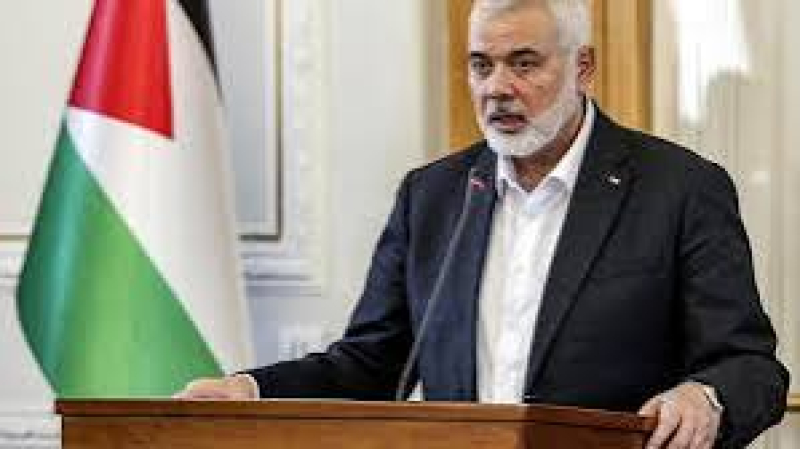- Red bus with ‘Bangladesh first’ slogan ready at Dhaka airport for Tarique |
- Flight carrying Tarique, family lands at Dhaka Airport |
- Tarique’s Flight Lands in Sylhet; Crowds Build at 300 Feet |
- Christmas in Bangladesh Thursday |
- Bangladesh Bars Internet Shutdowns, Restores BTRC Autonomy |
Hamas Leader Speaks in Iran of Israel’s 'Political Isolation'

Hamas leader Ismail Haniyeh, on a visit to Iran on Tuesday, said Israel is experiencing "unprecedented political isolation," a day after the U.N. Security Council called for a cease-fire in the Gaza war.
"Although this resolution came late and there may be some gaps that need to be filled, the resolution itself indicates that the Israeli occupation is experiencing unprecedented political isolation," Haniyeh told a news conference in Tehran after a meeting with Iranian Foreign Minister Hossein Amir-Abdollahian.
He added that Israel is "losing political cover and protection even in the Security Council" and "the U.S. is unable to impose its will on the international community."
"The Zionist entity" has "not succeeded in achieving any of its military or strategic objectives" after more than five months of war, Haniyeh said.
Haniyeh and the Palestinian delegation also met with Iran's supreme leader, Ayatollah Ali Khamenei, according to a statement on Khamenei's website.
The Iranian leader praised the "unique resistance of the Palestinian forces" against the "crimes and brutalities of the Zionist regime [Israel], carried out with the full support of the West," according to the statement.
"The Islamic Republic of Iran will not hesitate to support the cause of Palestine and the oppressed people of Gaza," Khamenei said during the meeting.
It is the second visit the Hamas leader has made to Tehran since the Iran-backed group launched an unprecedented attack on Israel on October 7, which resulted in the deaths of some 1,200 people, mostly civilians.
Haniyeh's last visit was in early November, when he met Khamenei and other officials.
Iran hailed the October 7 attack as a "success" but denied any direct involvement.
Iran-backed groups in Iraq, Lebanon, Syria and Yemen have since carried out a flurry of attacks on Israeli and Western targets.
Israel's retaliatory campaign against Hamas has killed more than 32,000 people in Gaza, most of them women and children, according to the Hamas-run territory's Health Ministry.
Haniyeh's visit comes after a resolution adopted by the U.N. Security Council on Monday called for an "immediate cease-fire" for the ongoing Muslim holy month of Ramadan, leading to a "lasting" truce.
It also demanded that Hamas and other Palestinian militant groups release hostages they took during the October 7 attack.
Militants seized about 250 hostages, of whom Israel believes some 130 are still held in Gaza, including 33 presumed dead, reports VOA.
Iranian foreign ministry spokesperson Nasser Kanani described Monday's resolution as a "positive but insufficient step."
He called for "effective measures to implement the resolution and the complete and permanent cessation of attacks.”

